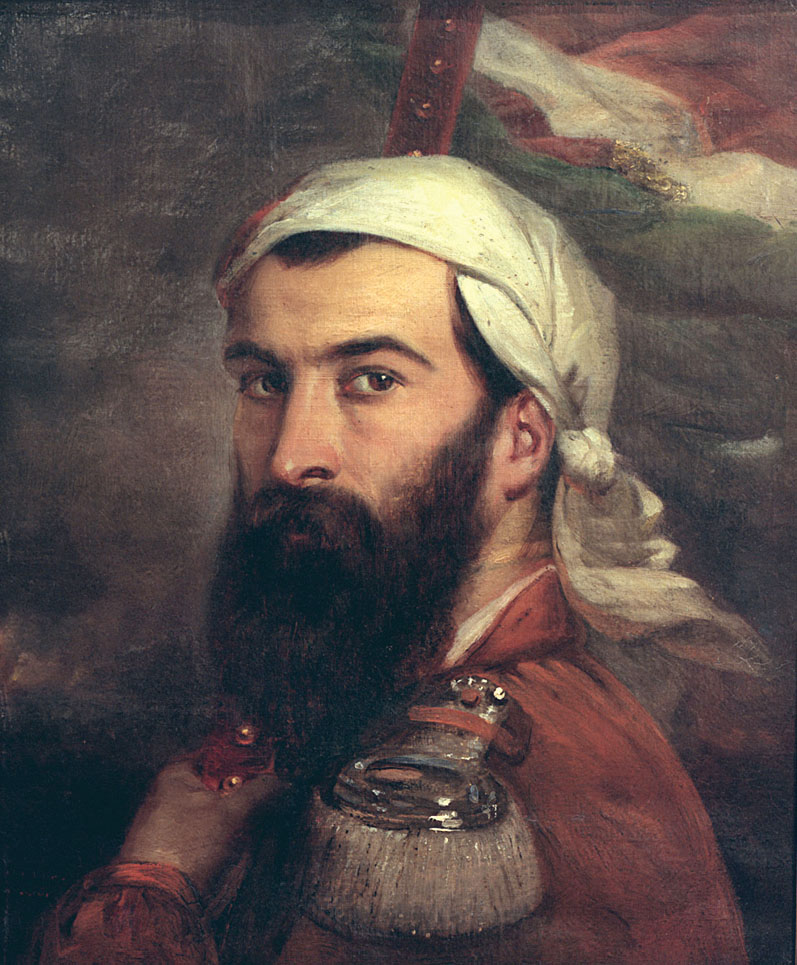A History of World Societies:
Printed Page 730
A History of World Societies Value
Edition: Printed Page 738
Individuals in Society
Giuseppe Garibaldi
Individuals in Society
Giuseppe Garibaldi

WHEN GIUSEPPE GARIBALDI VISITED ENGLAND in 1864, he received the most triumphant welcome ever given to any foreigner. Honored and feted by politicians and high society, he also captivated the masses. An unprecedented crowd of a half-
A rare combination of wild adventure and extraordinary achievement partly accounted for his demigod status. Born in Nice, Garibaldi went to sea at fifteen and sailed the Mediterranean for twelve years. At seventeen his travels took him to Rome, and he was converted in an almost religious experience to the “New Italy, the Italy of all the Italians.” As he later wrote in his bestselling Autobiography, “The Rome that I beheld with the eyes of youthful imagination was the Rome of the future — the dominant thought of my whole life.”
Sentenced to death in 1834 for his part in a revolutionary uprising in Genoa, Garibaldi barely escaped to South America. For twelve years he led a guerrilla band in Uruguay’s struggle for independence from Argentina. “Shipwrecked, ambushed, shot through the neck,” he found in a tough young woman, Anna da Silva, a mate and companion in arms. Their first children nearly starved in the jungle while Garibaldi, clad in his long red shirt, fashioned a legend as a fearless freedom fighter.
After he returned to Italy in 1848, the campaigns of his patriotic volunteers against the Austrians in 1848 and 1859 mobilized democratic nationalists. The stage was set for his volunteer army to liberate Sicily against enormous odds, astonishing the world and creating a large Italian state. Garibaldi’s achievement matched his legend.
A brilliant fighter, the handsome and inspiring leader was an uncompromising idealist of absolute integrity. He never drew personal profit from his exploits, continuing to milk his goats and rarely possessing more than one change of clothing. When Victor Emmanuel offered him lands and titles after his great victory in 1860, even as the left-
Above all, millions of ordinary men and women identified with Garibaldi because they believed that he was fighting for them. They recognized him as one of their own and saw that he remained true to them in spite of his triumphs, thereby ennobling their own lives and aspirations. Welcoming runaway slaves as equals in Latin America, advocating the emancipation of women, introducing social reforms in the south, and pressing for free education and a broader suffrage in the new Italy, Garibaldi the national hero fought for freedom and human dignity. The common people understood and loved him for it.
QUESTIONS FOR ANALYSIS
- Why was Garibaldi so famous and popular?
- Nationalism evolved and developed in the nineteenth century. How did Garibaldi fit into this evolution? What kind of a nationalist was he?
Document Project
How did Italian nationalists respond to unification? Examine evidence from the period following Italian unification, and then complete a quiz and writing assignment based on the evidence and details from this chapter.